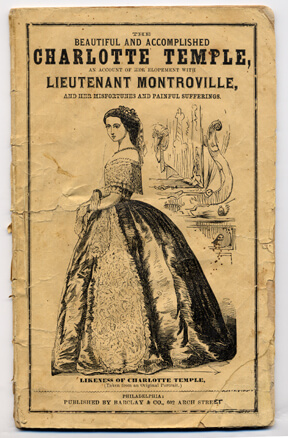 The decade since the publication of Catherine Gallagher’s landmark essay “The Rise of Fictionality” (2006) has witnessed an increasing concern with overturning well-established theories of the rise of the novel and the development of literary realism through a re-examination of the axiomatic values underpinning contemporary attitudes toward the concept of “fiction.” Variously substantiating, expanding and adapting Gallagher’s central claim that “fiction” is not a universal constant but a particular mode of negotiating referential truth claims that only emerged in the mid-eighteenth century, scholars of the early British and French novel such as Sarah Tindal Kareem, Srinivas Aravamudan, and Nicholas D. Paige have recently offered invigoratingly new accounts of the complex and contested epistemological status of imaginary stories as they began to define and redefine themselves against other popular narrative discourses. Gallagher herself dismissed the “Founded in Fact” trope familiar from texts such as The Power of Sympathy (1789) as evidence that "fictionality seems to have been but faintly understood in the infant United States.” But in the last few years a growing number of early Americanists have clearly begun to probe the truth claims of the post-revolutionary novel in ways that reveal the sophistication and potency of its fictionality, even if their approaches to this issue have emerged more indirectly from an engagement with the role of genre, the imagination, the enchanted or the utopian in early American fiction as revealed through the lens of new critical emphases on aesthetics, form and post-symptomatic reading.
The decade since the publication of Catherine Gallagher’s landmark essay “The Rise of Fictionality” (2006) has witnessed an increasing concern with overturning well-established theories of the rise of the novel and the development of literary realism through a re-examination of the axiomatic values underpinning contemporary attitudes toward the concept of “fiction.” Variously substantiating, expanding and adapting Gallagher’s central claim that “fiction” is not a universal constant but a particular mode of negotiating referential truth claims that only emerged in the mid-eighteenth century, scholars of the early British and French novel such as Sarah Tindal Kareem, Srinivas Aravamudan, and Nicholas D. Paige have recently offered invigoratingly new accounts of the complex and contested epistemological status of imaginary stories as they began to define and redefine themselves against other popular narrative discourses. Gallagher herself dismissed the “Founded in Fact” trope familiar from texts such as The Power of Sympathy (1789) as evidence that "fictionality seems to have been but faintly understood in the infant United States.” But in the last few years a growing number of early Americanists have clearly begun to probe the truth claims of the post-revolutionary novel in ways that reveal the sophistication and potency of its fictionality, even if their approaches to this issue have emerged more indirectly from an engagement with the role of genre, the imagination, the enchanted or the utopian in early American fiction as revealed through the lens of new critical emphases on aesthetics, form and post-symptomatic reading.
This special issue on "Fictionality and Early American Literature” seeks to consolidate and connect these emerging modes of literary interpretation as they apply to the issues raised by Gallagher and her respondents, as well as extending the debate to include work drawing on other key approaches to fictionality: among them, the narratological, the rhetorical, the philosophical, and the linguistic. Bringing this range of critical angles on the category, status and value of the “fictional” to bear in an early American context can not only cast fresh light on our understanding of post-revolutionary defences of and diatribes against novel-reading, but offer a more nuanced view of the varieties of fiction available in the new republic, from short magazine tale and the dramatic play to the secret history, as well as of the truth claims made by ostensibly factual narratives from the providence tale and the scientific treatise to the historical chronicle. Accordingly, we would welcome essays that analyse and compare a wide range of genres in order to assess the category of “fiction” as it appeared and developed in North America. The long-term nature of that process, as well as the transatlantic and multilingual identity of “fiction” in early America, means that we would also be keen to solicit work addressing relevant subjects as they pertain to any decade between the late seventeenth and early nineteenth century, in French- and Spanish-speaking as well as Anglophone territories in the New World. In addition to the areas mentioned above, those relevant subjects could include but are by no means limited to discussions of: religious, legal or poetic definitions of “truth” as they relate to fictional texts; the ontological status and emotional attraction of fictional characters; fiction’s controversial status as a vehicle for instruction and enlightenment; the gendered nature of anxieties about the epistemological risks of reading fiction; the relationship between republican conceptions of political virtue and fictive deception; distinctions between “fiction,” “literature,” “art” and other meta-categorizations of imaginative works.
Prospective contributors should send enquiries and submit 300-word abstracts to Thomas Koenigs (tkoenigs@scrippscollege.edu) and Matthew Pethers (matthew.pethers@nottingham.ac.uk) by January 31 2018, for 8000-10,000-word essays to be completed by February 2019.
